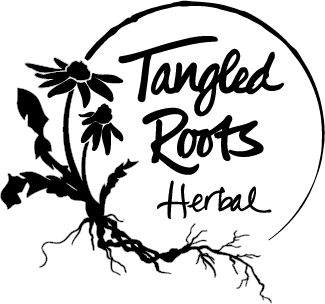Allergy season is just around the corner. Are you ready?
Allergies are our body’s natural immune response to a harmless substance like pollen, pet dander, or dust, that come into contact with our mucous membranes. They trigger the release of histamines, which include symptoms we’re all familiar with - sneezing, snotting, itching, etc. Many over-the-counter treatments are called anti-histamines, but we have lots of herbal allies who can be called upon for a more natural approach!
First, a word about diet. I highly recommend cleaning up your diet, because as we consume processed foods, industrial seed oils, glutens and such, they all cause inflammation in our digestive systems. Increase your consumption of veggies (cooked, 2-3 servings per meal, per day), fruits, nuts, healthy fats and proteins. Keep your diet as anti-inflammatory as possible.
It might not hurt to add fermented foods, too. Things like kimchi, sauerkraut and other fermented veggies. They help balance your gut, and helps you be less reactive to allergens.
Which herbs can I work with?
Out of all the herbs, here are some of our favorites:
#1. Garlic
Rich in sulfur, B & C vitamins and amino acids, these constituents are all anti-inflammatory. Garlic is also high in Quercetin, which is a known and natural anti-histamine which can help alleviate symptoms. I love cooking with LOTS of garlic, and some of my other favorite ways of getting it in me is to infuse it in honey for a hot, sweet treat!
#2. Stinging Nettles
Like garlic, nettles contain lots of compounds that behave like anti-inflammatories and can help reduce symptoms of allergies like sneezing, snotting, and itchy eyes. If you use it fresh, make sure you have gloves and crush it to avoid the hairs that cause lots of itching! But fresh nettles can be used in soups, stews and even a delicious pesto! You can tincture it, and also drink dried nettles in tea, too. I like to start working with nettles 2-3 months before allergies kick my butt, but now is better late than never.
#3. Mullein
If your allergies tend to have an affinity for your lungs and sinuses, and especially for asthma, congestion and sinusitis. Mullein is an expectorant, so it releases mucous, phlegm and congestion. BUT it’s also soothing to those irritated tissues - bonus! I love to add mullein to tea, it’s perfect to tincture, and you can even smoke it to deliver it directly to the tissues impacted by the allergens!
#4. Goldenrod
Oh, the bad rap this glorious “weed” gets. It’s often confused with ragweed, which *causes* allergies. But goldenrod contains loads of Quercetin (the same compound in garlic which is anti-inflammatory), but also is considered an astringent (drying) herb - it helps dry up all that muck in your mucous membranes. I have worked with it in tinctures, but highly recommend getting some fresh goldenrod, at the height of the goldenrod season. Just as the full energy of the plant is about to burst into blossom, I trim flowerheads and infuse them in fresh, local honey. It’s a treat to add to cups of tea or to bake and cook with! Or make yourself some tea to sip - and use some of it in a neti pot and flush those sinuses for super-quick relief.
Hope you’ll consider working with some of these herbs this season. They can be combined or worked with separately.
Please note: I’m not a doctor, and this is not medical advice. This is for educational purposes, and I encourage you to research these herbs to determine which would work best for you.
~ Karen

